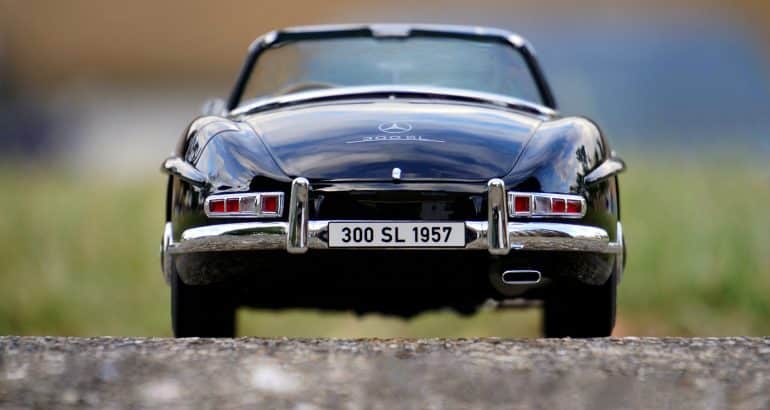
A common question we get asked by those shopping enthusiast insurance who are shopping for agreed value policies is whether an appraisal is required. And we don’t blame people for asking.
In fact, it’s a very fair question, and honestly one that has its roots in the fact that appraisals were typical with classic car insurance at one point. Also, anyone who has had a dispute regarding how their insurance company determined the value of the vehicle has likely considered, or been told to consider, an appraisal.
The short answer is sometimes, but not often enough you shouldn’t continue reading.
In this blog post we’ll review what agreed value policies are, who are often fits for agreed value insurance, whether and any situations an appraisal may be appropriate or necessary, and finally how to get an appraisal if one is required.
What Is An Agreed Value Policy?
Agreed Value Policies, referred by some carriers as Guaranteed Value policies, provide for a specific and agreed upon value up front. With an agreed value the documented valuation in the policy is the basis for any payments in the event of a total loss. This valuation does not need to be exclusively tied to the vehicle itself, but include restorations, modifications or other uniqueness that may impact the replacement value of the vehicle.
Agreed value policies are often offered starting as low as $5,000 of coverage. They have applicability is just about any situation where the Actual Cash Value wouldn’t represent the true replacement cost of the vehicle.
With Agreed Value and Guaranteed Value policies you’ll always want to verify both what the insurance company thinks the value of your specialty car is and where they get the value from, or be prepared to request what you expect the replacement value to be. For example, Hagerty has it’s own value database. While this is great because it does evaluate the enthusiast market, it doesn’t always mean their value will match what you expect, particularly if you have modifications or a unique vehicle.
When Is Agreed Value Insurance A Good Fit
You’ve Made Significant Investment Or Changes To The Car
If you’ve made a substantial investment into your vehicle, such as modifications, paint, motor swaps, restoration or upgrades to your vehicle you’ll definitely want to strongly consider an agreed value policy. Your vehicle doesn’t have to be high value for qualify for an agreed value policy.
You don’t need to have a tradition classic car or have a super car for the investment you’ve made into your car to be worth considering an agreed value policy.
Your Vehicles Book Value (Actual Cash Value) Is Lower Than The Cost To Replace It
If you know you couldn’t replace your vehicle – because of modification, restoration, or even just condition, for the “actual cash value” (ACV) of the vehicle, you probably want an Agreed Value policy. You can easily get a ballpark idea of what actual cash value for your vehicle would be by using a free online service like Kelly Blue Book (kbb.com). Enter your vehicles details and get the value range. There is a good chance this will be close to the offer you’ll get from your insurance company.
Remember, the actual amount you may get in the event of a loss is not just actual cash value, but ACV minus depreciation. So the actual check may be even lower with an ACV policy.
Your Car Is Unique Enough There Is No Value Database
If your car or vehicle is unique enough there is no value in most valuation tools, chances are you’ll need an agreed value policy. If it’s hard to establish value at the time of loss you are likely headed for disappointment. Your insurance company will likely use the closest possible match. The problem is, for unique cars – whether because they are rare, imported, customized or simply improved – there may be no other realistic way to define a value other than coming to an agreement up front with your insurance company. If you don’t, you run the risk of needing to pay for an appraisal. Even in that situation, appraisers may not be able to establish the value in the same way you would.
Your Car Is Appreciating Value
Most cars lose value every year and that is factored into the cash value. But what if you car is appreciating in value? Agreed Value is a great way to ensure the market value is actually captured. In fact, most traditional insurance companies will tell you flat out that they don’t even consider that cars may appreciate in value, they generally just assume that they will depreciate.
Do I Need An Appraisal For Agreed Value Insurance?
For most agreed value policies you won’t need an appraisal unless it is particularly high value or there is a unique situation where your insurance company requires one. We don’t recommend getting an appraisal unless you are explicitly told during underwriting that one is required for your policy.
We do highly recommend that you have reasonable documentation about your vehicle and how you come up with the valuation. In the case where there is restoration, modifications or other factors that impact the valuation you also keep additional documentation, like a list of modifications, invoices for restoration work and pictures that help justify it.
One of the major points of an agreed value policy is that you establish an agreed to value upfront. Once that is established, you generally won’t need an appraisal unless your insurance company believes something was misrepresented originally.
When Do I Need An Appraisal For Agreed Value Insurance?
There are a few special scenarios where you may need to get an appraisal for agreed value insurance. Most often this will be because of an extremely high value or a requirement from underwriting because your specific policy may not meet their typical risk profile. We most often see this with very unique vehicles and situations.
While most enthusiast policies will not require them, you are more likely to be asked for an appraisal with some conditions like:
- If the value of the policy is extremely high – we typically see this well above $100,000, though even then for a well known, high value car like an McLaren, Lamborghini or Ferrari it may still not be required.
- When potential values and conditions may have a wide range – older cars that may have a variety of potential conditions or values are more likely to need an appraisal, particular at the higher end of the range.
- If there is something non-tangible that may impact the value, such as being a piece of history or previously being owned by a famous person – appraisals are often required if a big portion of the justification for your policy amount is tied to something over the traditional fair market value of the vehicle and/or physical parts on the vehicle that can be easily quantified.
- Too much of the value is in additional parts or components – while not always required, if you have a show, race or highly modified car where a huge percentage of the valuation comes from claimed upgrades or modifications it may trigger an underwriting request for an appraisal.
- When you and your insurance disagree on the value – while within a specific range most insurance companies will just factor some of the risk into the price, if your preferred insurance company has a known value for a vehicle like yours but your requested amount is very different from what they expect, you may be asked to provide an appraisal.
These are 5 examples, but there may be a variety of other reasons specific to the insurance companies underwriting requirements. What’s we recommend is being prepared in these scenarios, but until you know you need an appraisal, there isn’t a lot of reason to get one.
How Do I Get An Appraisal If I Need One?
If you are looking for an appraisal in Georgia for your collector, high value, rare, unique or specialty car, below are a list of directories and resources you can use to find a certified appraiser. Shift Brokers recommends you only work with a certified appraiser who is familiar with appraisals for your type of vehicle in your specific situation of need.
Directories Of Certified Appraisers In Georgia
Below is a link to several directories of certified appraisers who are located or work here in Georgia. We should note that these organizations have their own methodology and certification process. Information about each organization shouldn’t be considered a review or endorsement.
The American Society of Certified Auto Appraisers – Georgia
International Automotive Appraisers Association – Georgia
Bureau of Certified Auto Appraisers/IACP Certified in Georgia
Independent Auto Damage Appraisers Association
The resources above are provided for informational purposes only. Shift Brokers does not endorse any specific appraiser or appraisal/adjuster organization.
Shift Brokers Can Help You Navigate
Shift Brokers is car insurance for car enthusiasts. We can help you understand the how different carriers will value your specialty car. In addition, we can help you select from insurance companies that will get you the kind of service and coverage you need. And because we are car enthusiasts and specialize in policies for car enthusiasts, we can help you navigate the unique needs and situations only car enthusiasts find themselves in. The best part is, because we are brokers, we represent you, not the insurance companies. There is never any obligation to work with us.
Contact Me About My Insurance Needs Or Questions
Informational Purposes Only
As with all of our blog posts with tips and suggestions about car insurance for enthusiasts, these are intended as general information. The specifics of your policy and carrier may differ. The information in this blog post is not intended to be formal insurance advice. However, if you’d like to talk to a licensed agent about your specific needs or questions, get a quote. Always read your policy carefully.


